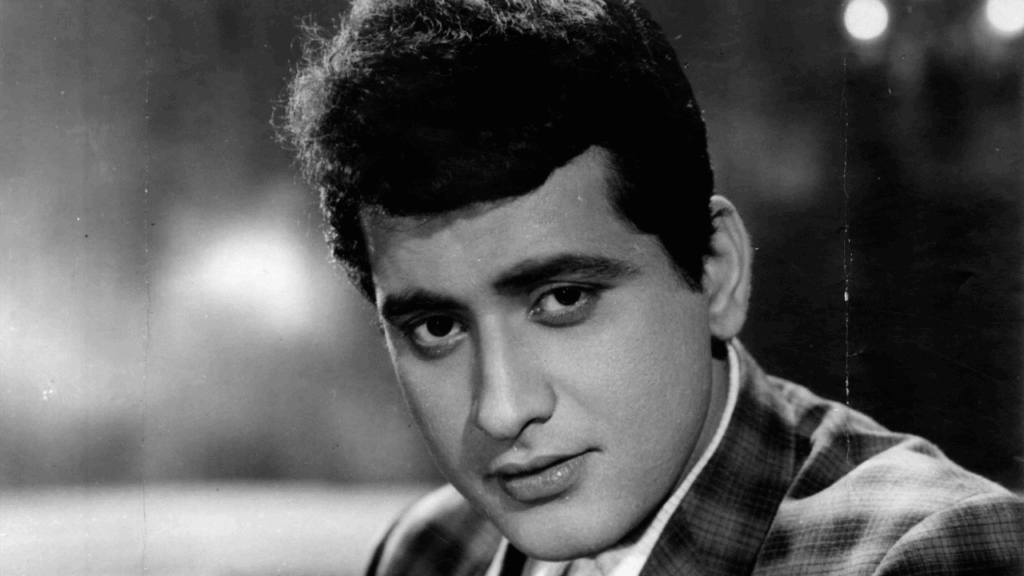When you think of Hindi cinema’s golden years, you can’t miss Manoj Kumar—the man whose very name became synonymous with “Bharat.” His movies weren’t just stories; they were statements, steeped in patriotism, love for the soil, and concern for the common man. From Shaheed to Upkar, Purab Aur Paschim to Kranti, his films carved out a space where nationalism and cinema blended seamlessly.
This year, when Manoj Kumar passed away on April 4, the nation lost not just an actor-filmmaker but a voice that always spoke for India and its people. His son, Kunal Goswami, now looks back at his father’s extraordinary life, not as the larger-than-life figure the world knew, but as a man, a father, and a storyteller who carried the scars of history and turned them into timeless cinema.
The Childhood That Shaped The Patriot
Manoj Kumar was born Harikrishan Giri Goswami in 1937 in Abbottabad (now in Pakistan). Partition left deep wounds on his family. They lost relatives to the violence, including his father’s younger brother who was killed on a train to India. The family lived in a refugee camp in Delhi, struggling to rebuild their lives.
But instead of bitterness, Partition ignited something else in him—an intense sense of patriotism. Kunal recalls how his father’s early experiences of displacement and struggle stayed with him throughout his life. They didn’t just define him; they became the foundation of his creative voice.
Years later, when travel to Pakistan reopened in the 1970s, Manoj Kumar returned to visit the place of his birth. He remembered every detail—his old house near a dargah, the narrow lanes, the memories of childhood. For him, the journey wasn’t just physical; it was emotional closure to a chapter that had both pained and inspired him.

From Writer to Actor, Cinema Became His Language
Not many know that Manoj Kumar’s first love was writing. He started out ghost-writing at Ranjit Studio, earning a modest Rs 10–11 per scene, scripting in Urdu. Cinema, however, had bigger plans for him. Inspired by Dilip Kumar, whose character’s name “Manoj” in Shabnam became his screen name, he entered films as an actor.
His first few roles were small, but soon Hariyali Aur Rasta (1962) opposite Mala Sinha put him on the map. Films like Woh Kaun Thi?, Do Badan, and Himalay Ki God Mein followed, earning him recognition not just for his acting, but also for his keen involvement in writing and even ghost-directing scenes. Kunal fondly remembers how his father had an instinct for storytelling that directors trusted.
Of course, one cannot forget “Lag Jaa Gale,” filmed on him and Sadhana. Even today, it stands as one of Indian cinema’s most haunting love songs, forever linking Manoj Kumar with romance as much as with patriotism.
Patriotism Found Its Voice on Screen
While he enjoyed romantic roles, Manoj Kumar’s destiny was nationalism. Shaheed (1965) about Bhagat Singh was a turning point. So moved was Prime Minister Lal Bahadur Shastri by the film that he stayed for the entire screening, even though he had planned to leave midway. Shastri later urged him to make a film on his slogan “Jai Jawan Jai Kisan.” That’s how Upkar (1967) was born—a film that not only won awards but gave Indian cinema its second anthem, “Mere Desh Ki Dharti.”
With Purab Aur Paschim (1970), Manoj Kumar explored East vs. West culture clashes, while Roti Kapda Aur Makaan (1974) boldly spoke about unemployment, poverty, and inflation. These weren’t just films; they were mirrors held up to society. Kunal notes how his father was deeply involved in every detail, from rewriting scenes to sitting in on music recordings. In fact, some of the songs we know and love carried uncredited lyrical contributions from him.
And then came Kranti (1981), a film so massive it initially overwhelmed audiences with its length. But Manoj Kumar stood by his vision, and soon enough, people came back to watch it again. It became a blockbuster and a cultural event, cementing his image as a filmmaker who wasn’t afraid to take risks for the stories he believed in.
Faith, Family, and an Enduring Legacy
While nationalism defined his public life, faith defined his personal one. A devoted follower of Sai Baba, Manoj Kumar made Shirdi Ke Sai Baba in 1977, a film that helped put Shirdi on the map. His connection was so deep that when he passed away, the Shirdi temple sent sacred offerings that were part of his final rites.
For Kunal, remembering his father is not just about celebrating the legend the world adored, but cherishing the man who lived with conviction, humility, and a heart full of love for his country. “His films were his expression,” Kunal says. “He wanted to speak to people, to move them, to remind them of who they are and where they come from.”
Even as films and trends change, Manoj Kumar’s body of work continues to inspire. His cinema wasn’t bound by time—it was built on values, ideals, and emotions that remain relevant. For Kunal, and for millions of fans, Manoj Kumar will always be “Bharat”—not just in name, but in spirit.






















